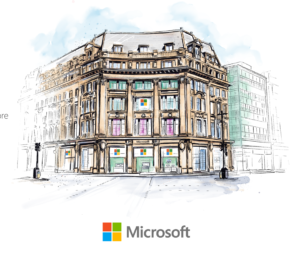 Software king of the world Microsoft says it has soaked up more than half of the managed service provider (MSP), reseller and services market.
Software king of the world Microsoft says it has soaked up more than half of the managed service provider (MSP), reseller and services market.
This week’s partner-focused Microsoft Inspire event was shown Vole’s Microsoft’s Landscape and Attitudes study — a collaboration with Analysys Mason — released at the conference was based on an in-depth look at 3,000 small and mid-sized businesses (SMBs) in 10 countries.
This study discusses key findings in the SMB segment, their significance for the Microsoft partner community, and how Microsoft can help SMBs thrive in this modern, digitally enabled economy. It is a study, with a number of insights into SMBs representing all types of markets: mature, middle, and developing.
Microsoft defines SMBs as organizations with one to 300 employees, which covers about 149 million customers. To date, the sector has been growing 20 percent year-over-year, and 80 percent of that SMB business is transacted through partners.
Microsoft estimates that in 2023, IT spending will grow to about $1.2 trillion for organisations between one and 300 employees. A lot of that will still be for on-premises solutions, but over $500 billion will be cloud-related spending.
Microsoft surveyed companies that have been in business for six to 19 years, with four percent of the companies being in business for less than three years—mostly startups created during or immediately after COVID-19.
The study correlates technology adoption patterns and business results by analysing a mixed lot of SMBs that reported revenue growth or faced a staggering decline. Here is a brief breakdown of the tech decision-makers in these SMBs.
About 41 percent of millennials are moving into decision-making roles and 80 percent of men are tech decision-makers compared to 20 per cent of women
In SMBs in both emerging and mature markets, baby boomers and GenXers are hitting retirement, and millennials are taking over the decision-making roles. Since Covid hit, many people are giving up their jobs and setting up their own businesses, mostly owned by millennials.
Vole’s report said that millennials come with a different mindset and buying behaviour. They are digital natives bringing a consumer-driven approach. Moreover, millennials have similar experience and expectations. For instance, they value reviews and demand more than the status quo. Here are some other market influencing millennial traits:
Millennials are much more optimistic about the future and more confident that their company will achieve business objectives
Millennials prefer to work in companies that are early adopters of technology.
A majority is inclined toward working for a company with actionable business plans and strategies to make them come true
In short, millennials are early adopters of the technology, which is something that the SMB landscape can use.





